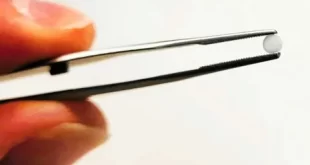We are offering a postdoctoral fellowship for a research project on metabolic pathways for methylmercury formation in anaerobe bacteria. We seek a candidate who is interested in combining analytical method development work and identifying molecular mechanisms for microbial methylmercury formation. Apply no later than 30th of October 2023.
Project description
The postdoc will study cellular processes for the methylation of inorganic mercury (Hg) to methylmercury (MeHg) in anaerobe bacteria. The research will focus on identifying metabolic pathways for the delivery of the methyl group involved in the reaction.
Neurotoxic MeHg accumulates in aquatic biota and Hg is considered one of the top ten chemicals of public health concern. Methylmercury is formed intracellular by methylation of inorganic Hg by specific anaerobe microorganisms. Our mechanistic understanding of bacterial uptake and methylation of Hg is however insufficient. In this project you will be part of a research team which combines mass spectrometry, spectroscopy and molecular biology in novel approaches to resolve these outstanding important questions.
The post doc will develop refined methodologies based on enriched isotope tracers and chromatography-mass spectrometry tailored to study intracellular formation of MeHg. Liquid chromatography coupled to both ICP-MS and ESI-MS will be used. The tracer experiments will be combined with global metabolomics studies using LC-MS techniques (in collaboration with partners). The studies will initially focus on the reductive acetyl-CoA pathway, suggested to play a central role in MeHg formation, and subsequently be expanded to studies of broader metabolic networks.
The post doc fellowship is funded by the Kempe Foundations and the project will be conducted in close collaboration with scientists specialized in analytical chemistry and biogeochemistry of trace metals (Prof. Erik Björn, https://www.umu.se/en/research/groups/erik-bjorn-lab/) and metal-microorganism interactions (Assoc. Prof. Madeleine Ramstedt, https://www.umu.se/en/research/groups/madeleine-ramstedt-lab/) at Umeå University.
The fellowship is full-time for a period of two years and amounts to 312 000 SEK per year. Starting date will be decided in agreement betweenthe two parties.
Qualifications
The required qualification is a doctoral degree, or a foreign degree that is deemed equivalent, in analytical chemistry, bioinorganic chemistry, metabolomics or equivalent field. Priority should be given to candidates who have completed their doctoral degree no more than three years before the closing date of the application. A candidate who has completed their degree prior to this may be considered if special circumstances exist. Special circumstances include absence due to illness, parental leave or clinical practice, appointments of trust in trade unions or similar circumstances.
You should have experience of and a strong interest in advanced experimental work. You should have a good ability to take initiatives and collaborate and be flexible to changes within the project. In your work, you should have a focus on high quality and a good ability to solve problems analytically. A very good knowledge in written and spoken English is required. Experience of chromatography-mass spectrometry method development work, metabolomics studies or metal-microorganism interaction studies are meritorious.
Application
A complete application, written in Swedish or English, should contain the following documents:
- A cover letter including a description of your qualifications, research interests and motivation for applying, and your contact information (maximum 2 pages)
- A curriculum vitae, including a publication list
- An e-link to your PhD thesis and maximum 5 relevant publications
- Copies of doctoral degree certificate or equivalent and other relevant degree certificates, including documentation of completed academic courses and obtained grades
- Name and contact information of at least two reference persons
- Other relevant documents you wish to claim
Your complete application, marked with reference number FS 2.1.6-1807-23 should be sent in PDF format to medel@diarie.umu.se (with reference number on the subject line) no later than 30th of October 2023.
For more information please contact Prof. Erik Björn, phone: +4690-7865189, email: erik.bjorn@umu.se or Assoc. Prof. Madeleine Ramstedt, phone: +4690-786 6328, email: madeleine.ramstedt@umu.se
Department of Chemistry
The Department of Chemistry is the largest department within the Faculty of Science and Technology and has about 200 employees, of which about 40 are postdocs, and with a strong and expanding research. Three major research areas, Biological Chemistry, Environmental and Biogeochemistry and Technical Chemistry bring together the department’s research and education in chemistry. We are also a strong partner within the KBC, Chemical-Biological Centre, at Umeå University. You will work in a research environment that offers a strong focus and depth in analytical chemistry, biogeochemistry, metabolomics and microbiology, but also a wide range of expertise and research infrastructure within the KBC environment. Furthermore, the postdoc communities both at Umeå University (https://umeapostdocsociety.se/) and internationally within mercury research (https://mersorcium.github.io/) are highly active and contribute to a vibrant research environment and network.
Caractéristiques de l'emploi
| Catégorie emploi | Stage et Formation |
 Etudes Non Stop Etudes Non Stop
Etudes Non Stop Etudes Non Stop



